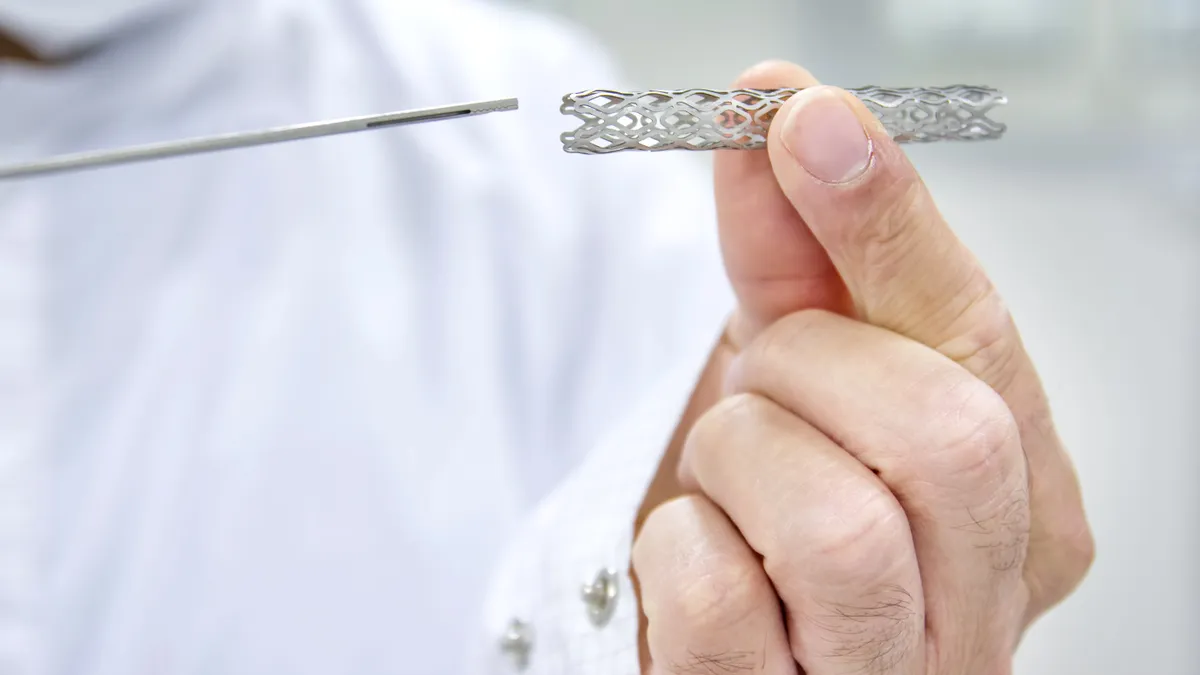Dive Brief:
- Drug-coated balloons worked just as well as stents for clearing blockages in small arteries that were clogged for the first time, sparing patients the need for a permanent implant, according to a new study presented at the European Society of Cardiology Congress in Munich and published in the Lancet.
- Balloons, which are removed after the procedure, are currently approved in Europe to reopen arteries previously treated with a stent that have become clogged again.
- The study, called Basket-Small 2, is the largest randomized trial to look at whether drug-coated balloons are as effective as drug-eluting stents for removing initial blockages in arteries less than three millimeters in diameter, researchers said.
Dive Insight:
Drug-eluting stents are small mesh tubes inserted into clogged arteries to keep them open after an angioplasty. The stents have a polymer coating that emits a drug over time to help prevent the blockage from coming back.
Though a standard treatment for coronary artery disease, stents carry a risk, particularly in smaller arteries, that tissue will grow inside the device and block the artery for a second time.
The 758-patient study by researchers at University Hospital in Basel, Switzerland, compared removable balloons to stent implants for opening small blocked arteries. The balloons were coated with iopromide and paclitaxel, and the stents were covered with everolimus or paclitaxel.
At 12 months, the researchers found no significant difference between the two treatments on a composite measure of death, heart attack and the need to reopen the artery. There were no statistical differences between groups for the individual components of the primary endpoint. Rates of major bleeding also were similar.
Study author Raban Jeger of University Hospital said drug-coated balloon angioplasty could become the preferred treatment for small arteries.
"With no permanent implant left after the procedure, the problem of tissue growth and clot formation within the stent is eliminated," Jeger said in a press release. "In addition, there may be no need for prolonged treatment with anti-clotting medicines, which has been controversial since it increases the risk of bleeding."










